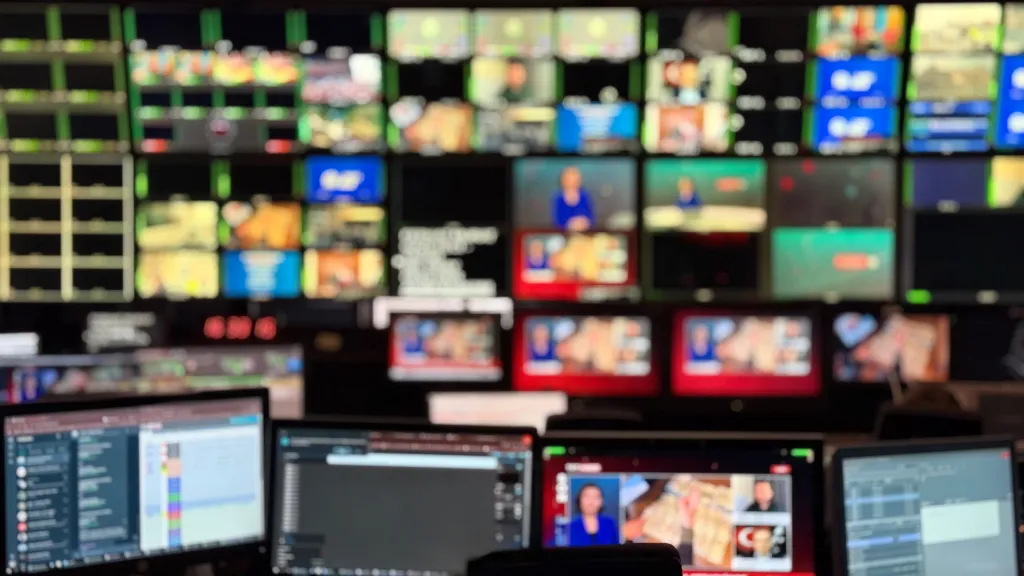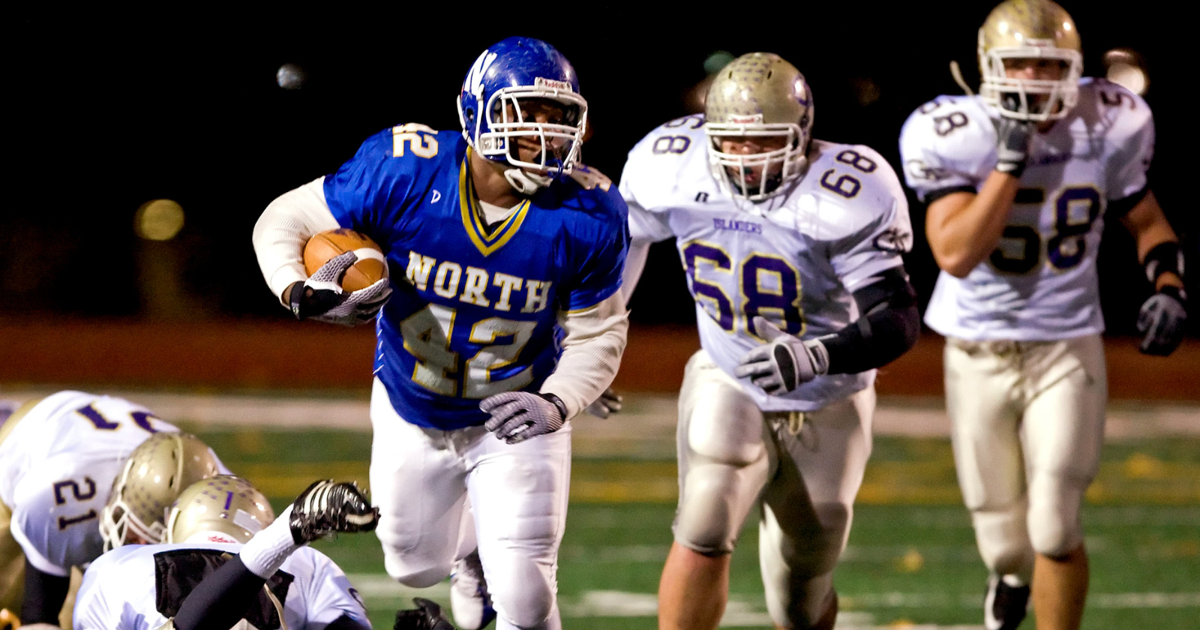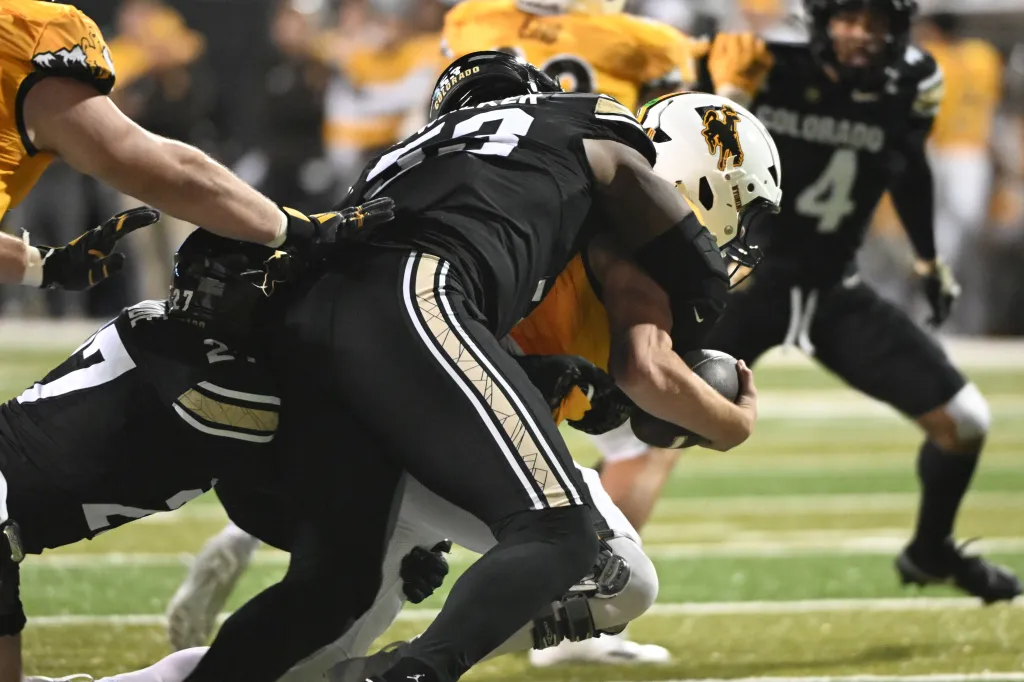
Jimmy Kimmel Live! is returning to ABC, but not in about one-quarter of U.S. households. Nexstar Media Group and Sinclair have said they still are not going to air the late-night show on their stations.
Between the two major station owners, the ban will affect viewers in dozens of markets, including sizable ones like Washington, D.C., Seattle, St. Louis and Portland, OR.
Those are some pretty large holes in the clearance map for a show that has pulled in $70 million in 2025 to date in advertising revenue, according to ad tracking firm iSpot. Its promotional value for Disney‘s studio and streaming operations is also being diminished during both the show itself and its commercial breaks, with vertical promotions of Disney titles accounting for about 12% of ad time. The media giant, having taken some lumps from viewers and Hollywood during the nearly week-long crisis, will now be taking a harder look at its options with Sinclair and Nexstar.
Kimmel’s future on the groups’ airwaves, which entered a limbo state after he joked about Republicans’ reaction to conservative activist Charlie Kirk’s shooting death, depends to some extent on the tenor of his post-suspension comments and the reaction to them. President Trump’s war on the media and his attack-dog FCC Chairman, Brendan Carr, have created a situation without precedent, making predicting anything a hazardous prospect.
Nevertheless, the path from here will still be shaped by a legal and business framework established long before the streaming era. Disney, Nexstar and Sinclair have declined to say anything other than carefully worded, limited statements. In search of answers to a handful of key questions about the Kimmel affair, Deadline spoke with a number of stakeholders in local television. Here are some of the mains Qs and As:
How long could the standoff last?
Even if it’s only a few days, the industry could be in fairly uncharted territory given the sheer volume of the holdouts. (For comparison with one notable past flash point, it’s worth recalling that when Ellen DeGeneres’ character came out as gay on the sitcom Ellen in 1997, only one ABC affiliate, in Birmingham, AL, refused to air the show despite widespread controversy.)
“It depends how crazy it gets,” one veteran broadcast executive told Deadline in assessing how long it could go. “It depends who fights the first legal battle and whether ABC wants to go after them in some way, shape or form, how aggressive they want to get. ABC will turn the other cheek for a while until they don’t want to turn the other cheek anymore.”
Kirk’s memorial last Sunday, which was widely televised and included notable comments from the slain activist’s widow, Erica Kirk. “Once she said she forgave the killer, she sent a unifying message,” the exec continued. “She was the most important person in there.”
Carr’s exuberance (including his open threats against Disney and his gleeful Office-meme-sharing stance on social media) landed awkwardly with some prominent Republicans, including Senators Rand Paul and Ted Cruz. The fact that it is not a strictly partisan issue could ultimately help persuade Sinclair and Nexstar to quietly backtrack. “They’ve scored their points,” one local station staffer said. “How are they going to tell GMs who need audience to keep standing on principle?”
Could the affiliate agreements between the stations and ABC help force a resolution?
The agreements, which typically last three years, include a set of provisions for both stations and networks. “Normally, the local station has rights to pre-empt up to a certain amount of times, unless it’s a national emergency,” the broadcast exec said. If the stations exceed that number, they lose rights to air that show and the network can shift the show and its affiliated station elsewhere in a given market.
Can ABC use high-profile programming like sports or major unscripted shows as leverage and threaten to pull it if Nexstar or Sinclair don’t budge on Kimmel?
Affiliate agreements prevent networks from cherry-picking certain shows to use as leverage. One key weapon in most companies’ arsenals in disputes with affiliates is the NFL. While ABC doesn’t have as much of the top-viewed league as rivals CBS, NBC and Fox, it simulcast ESPN’s Monday Night Football as well as key NBA and college football telecasts. And in February 2027, Disney has rights to the Super Bowl, which will strengthen its hand, even if only in the next round of affiliate deal negotiations.
Veterans of the local TV trenches note one particular pocket of revenue is certainly not far from the minds of those locked in this dispute: digital retransmission consent dollars. Traditional pay-TV operators like cable and satellite companies are covered by affiliate deals that create close to a 50-50 split when its comes to retransmission consent fees. Digital fees, however – a growing bucket thanks to streaming bundles like YouTube TV – are controlled by the national networks and are not shared with stations.
“This is such a dysfunctional relationship,” one station group alum says of relations between networks and affiliates. At 8 million subscribers, YouTube TV is now larger than nearly all cable and satellite operators. “You would think with that growth, the idea would be to work together so that everyone can make money. Instead they screw affiliates over and just hand money to talent or to the NFL.”
Couldn’t ABC just shift Kimmel to a different station in the same market?
They could try, and as mentioned above there could be a way to enforce agreements in order to change the channel, but doing do is a time-consuming and tricky process. ABC did shuffle its Miami affiliate this year, parting ways with a station owned by billionaire Warren Buffett after failing to reach terms. But doing so in larger numbers across the country would run up against the very trend that helped motivate Nexstar and Sinclair to yank Kimmel in the first place: consolidation. Both companies have pending deals in front of the FCC, meaning they wanted to make a show of complying with the wishes of agency chairman Brendan Carr and President Trump.
Those same forces, which have allowed a wave of M&A deals to create “super groups” over the past decade mean that ABC would be unlikely to find available independent stations, particularly in smaller markets. And if an available one were owned by Tegna, which has a proposed $6.2 billion merger agreement with Nexstar, it is highly unlikely that Tegna station would pick up Kimmel.
It’s 2025 – couldn’t ABC just put Kimmel on YouTube or ABC.com for free, or move it behind the pay wall on Hulu?
There’s some logic to that kind of move, but it would provoke other local affiliates who have stuck by the show. As streaming has become ubiquitous, major media companies like Disney have repeatedly Those relationships between affiliates and networks explains why shows don’t stream on the same night they air on pay-TV, but instead the next day.
Disney, remember, has its own pay-TV bundle, Hulu + Live TV, but is prevented from favoring it for strategic purposes. Those limitations were revealed during a carriage fight between Disney and Spectrum parent Charter Communications in 2023. Even at the peak of that fight, Disney never told viewers to subscribe to Hulu + Live TV for fear of getting sued by other operators.
When streaming was in its infancy, network parents experimented with permitting live streams of shows also airing on networks. Today, networks don’t want to give consumers even more reason not to subscribe to pay-TV. Of course, exiting late-night altogether, as CBS is doing with Stephen Colbert’s Late Show exit next May, is a distinct possibility for ABC and Disney. “While the show is still on, though, why would you want to do without all those markets?” asks one exec. “And why would they want to do without the show, given that it will still out-rate local news at that hour?”
Lynette Rice contributed to this story.



